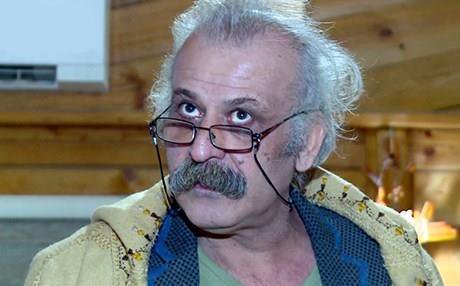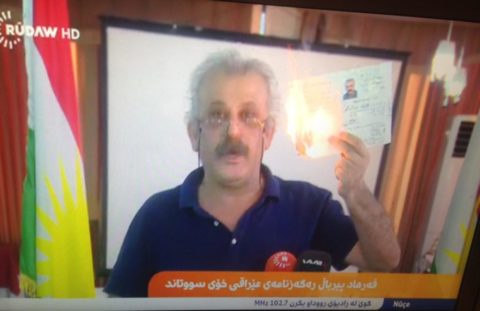Tairawa
House Number 297
Its evenings all mornings, its seasons all spring,
Its dust all rosewater, its steam all incense
—Nali, tr. by Shene Mohammed and Alana Marie Levinson-LaBrosse
I always think of a house,
think of a pathway, of footprints, which lead me back to that house.
Since the taste of moonlight and spirited songs have faded from the tablecloth, I wander and
wander.
Since my room has taken on the scent of routine and the sweaty armpits of prostitutes.
I ask and ask.
I have asked every squirrel, every aged eagle
returning from the colorful huts of childhood, love, and humor.
That house, even if distant, I remember:
its walls are built with the cloudy feelings of kindness;
its window a rectangular, moonlit prediction;
its lamps, burning with our childhood laughter.
That house, its terrace is where feelings have their tryst with the grass, embracing.
There is a small ladder, which love and lust
climb to the green roof of adolescence and dreaming.
That house, a merciful stream passing through it
with a color for each season, a sound for each day, and a taste for each moment.
What bad fortune! My childhood is far away, so far away; my death is even farther.
Step by step…
Any desires that smells of grass and walnuts, I approach.
Any mirage that calls me with its glimmering comfort, I approach.
What a rocky and arduous path;
the sound of a strong wind!
But I am used to this absurd search.
What a lonely man I am, what a stranger:
scared to die in this strange village!
Agh!
It was on a devastated evening, crushed into pieces, that I bid farewell to that house:
my footsteps stared back at its cloudy door
and they cried.
* * * * * * * *
Hotel Paradis
on this broad earth
in a neglected city of refugees on the shore
in a ninth arrondissement hotel
in a room
in a cold corner
with no fireplace
alone:
I sit in front of
pictures from eleven years ago
I
W
E
E
P
.
.
.
.
* * * * * * * *
My Home on My Shoulders
Paths
Paths
Paths
There’s no path I haven’t walked down.
Homes
Homes
Homes
There’s no home I haven’t died in.
You, whose fingers lead to the sun’s rays and the sea’s path!
I am tired of every path
I am tired of every home;
You
You show a path
To me, the shrub that blocks it
You show a house to a homeless man;
You, whose fingers lead to the sun’s rays and the sea’s path!
Ospanov: 1985
* * * * * * * *
1993
As long as the price of a shoe in Paris
is enough to feed 30 of the hungry in Siberia,
as long as 3 cold Swedish krona
is worth 33 days in the lives of 33 of the hungry in Somalia,
as long as the price of a Pepsi-Cola in Chicago
is worth the monthly salary of an employee
gone unpaid in Hewler,
as long as a pound is worth two tins of fuel in Sarajevo,
as long as the price of an agal in Saudi Arabia
is worth two houses for a homeless nobleman in Armenia,
as long as a German mark is worth almost a can of cheese
and a sack of potatoes in St. Petersburg,
as long as the price of a pair of underwear in Geneva
is worth fifteen kurta and sherwal in Bombay,
as long as the asshole dollar is worth five hundred dinars in Sulaimani,
as long as even thirty-five hundred dinars is not worth
a glass of ice cream in Venice,
this world must be destroyed ⎯ entirely!
* * * * * * * *
 Born in 1961 in Hewler, the capital of the semi-autonomous Kurdish region of Iraq, Ferhad Pirbal is an acclaimed Kurdish writer, poet, novelist, painter, and critic. He studied Kurdish language and literature in Sulaimani University, joined the Kurdish Writers Union in 1984, and published his first book, a play titled Farewell to my Country. He left Kurdistan for France in 1986 to continue his studies at the Sorbonne. After completing his PhD, he returned to Kurdistan and taught Kurdish Literature at Salahadin University. In 1994, he established the Sharafkhan Badlisi cultural center. Pirbal has published more than 50 books of writings and translations, including six books of poetry, later collected in Refugee Number 33,333. Unique among the Kurdish poets of his generation, he was deeply influenced by Surrealism, and his work portrays the warring ideas of life and death, wisdom and irrationalism. Moving from a community occupied by the Iraqi Ba’ath regime to a European democracy, Pirbal learned to walk the tightrope between freedom and repression.
Born in 1961 in Hewler, the capital of the semi-autonomous Kurdish region of Iraq, Ferhad Pirbal is an acclaimed Kurdish writer, poet, novelist, painter, and critic. He studied Kurdish language and literature in Sulaimani University, joined the Kurdish Writers Union in 1984, and published his first book, a play titled Farewell to my Country. He left Kurdistan for France in 1986 to continue his studies at the Sorbonne. After completing his PhD, he returned to Kurdistan and taught Kurdish Literature at Salahadin University. In 1994, he established the Sharafkhan Badlisi cultural center. Pirbal has published more than 50 books of writings and translations, including six books of poetry, later collected in Refugee Number 33,333. Unique among the Kurdish poets of his generation, he was deeply influenced by Surrealism, and his work portrays the warring ideas of life and death, wisdom and irrationalism. Moving from a community occupied by the Iraqi Ba’ath regime to a European democracy, Pirbal learned to walk the tightrope between freedom and repression.
 In 2016, Pirbal advocated for Kurdish independence by publically burning his Iraqi passport in a video that went viral. On April 12, 2017, two armed men attacked and seriously injured Pirbal in Erbil; a video of this crime also was seen globally. In November 2018, Pirbal was arrested in Erbil – and a lawsuit was filed against him — for allegedly defaming a Turkish politician. Today he lives in Hewler in declining health.
In 2016, Pirbal advocated for Kurdish independence by publically burning his Iraqi passport in a video that went viral. On April 12, 2017, two armed men attacked and seriously injured Pirbal in Erbil; a video of this crime also was seen globally. In November 2018, Pirbal was arrested in Erbil – and a lawsuit was filed against him — for allegedly defaming a Turkish politician. Today he lives in Hewler in declining health.
The first three poems in this selection appeared in Pirbal’s debut collection, Exil (Paris, 1990), written between 1984 and 1990. “Tairawa” is named after his childhood neighborhood in Hewler. One of the oldest central neighborhoods in the city, its name means “bird land.” “Hotel Paradis” typifies Pirbal’s interest in visual poetry, which continues throughout his work in the forms of both concrete poetry and erasure poems made from classical Kurdish texts. After much discussion and considerable detective work, we have chosen to interpret a phrase from that poem that in Kurdish literally means “ninth degree,” in reference to the location of its titular hotel, to be the poet’s translation into Kurdish of the name of Paris’ Ninth Arrondissement, in light of the poet’s exile in that city. We have endeavored to do justice to Pirbal’s dynamic use of language, which often employs irregular syntax, repetition, and the use of white space to achieve his characteristic effects, at turns playful and political, experimental and traditional. “1993” first appeared in Pirbal’s second collection, The Second Manifesto of Ruins (Paris, 1999), and characterizes the proclamatory, truth-telling mode that the poet embraced during the 1990s. Even here, however, his work is marked by what we might term Pirbalian nostalgia: imagining a brighter future for his homeland — or for himself — is impossible without looking to the past.
The five poems appear here with the permission of Ferhad Pirbal.